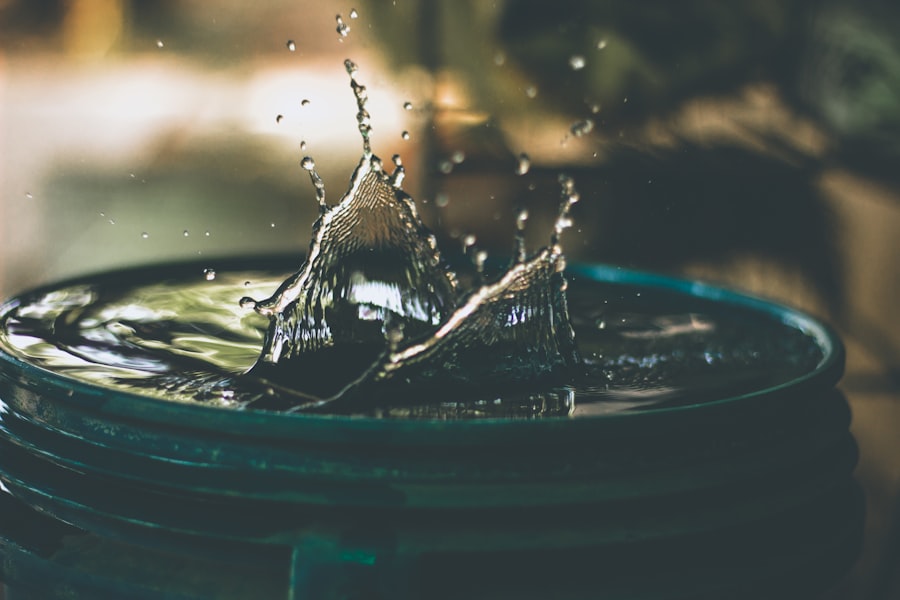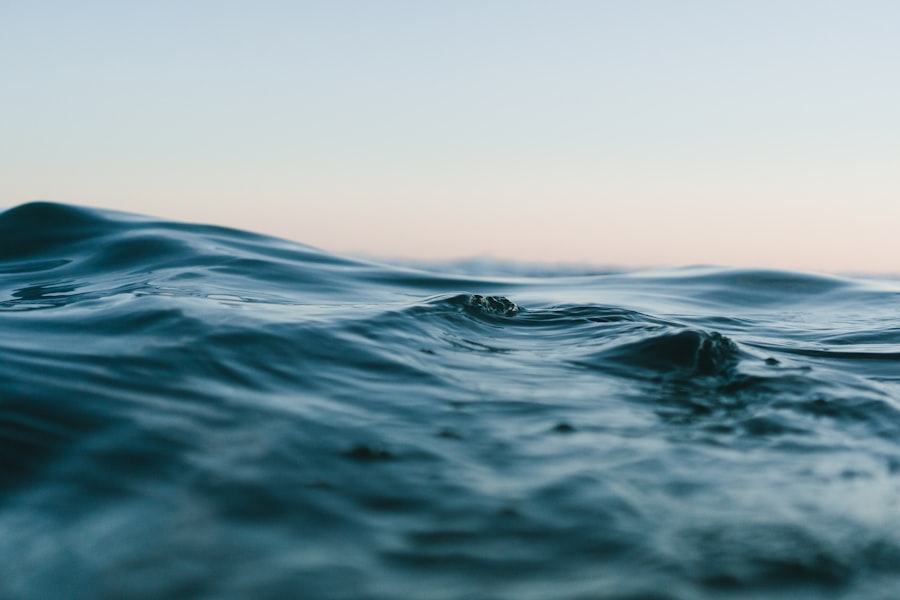Water is a vital component of a chicken’s diet and health. Chickens require water for survival and optimal functioning, as it is essential for digestion, nutrient absorption, temperature regulation, and various bodily processes. Dehydration in chickens can result in health problems and potentially be fatal.
During cold weather, it is crucial to provide chickens with unfrozen water, as snow or ice consumption may not meet their hydration needs. Chickens may also increase their water intake in cold temperatures to help regulate body heat, making water access particularly important in winter. Water also plays a significant role in egg production.
Insufficient water intake can lead to reduced egg laying, thinner eggshells prone to breakage, or in severe cases, a complete cessation of egg production. Therefore, chicken owners must ensure a constant supply of clean, unfrozen water for their flock, especially during colder months when water is more likely to freeze.
Table of Contents
- 1 Choosing the right water container for cold weather
- 2 Insulating the water container
- 3 Using heated waterers
- 4 Adding a water heater to the chicken coop
- 5 Implementing alternative methods to prevent freezing
- 6 Monitoring water temperature and providing fresh water regularly
- 7 FAQs
- 7.1 What are the best ways to keep water for chickens from freezing?
- 7.2 What is a heated waterer and how does it work?
- 7.3 How can I insulate water containers to prevent freezing?
- 7.4 What are heated bases and how do they help keep chicken water from freezing?
- 7.5 Is it safe to add salt to chicken water to prevent freezing?
Key Takeaways
- Water is essential for chickens’ health and egg production
- Choose insulated water containers to prevent freezing in cold weather
- Insulate water containers with foam or use heated waterers to keep water from freezing
- Consider adding a water heater to the chicken coop for consistent warmth
- Implement alternative methods such as adding salt or sugar to water to prevent freezing
- Monitor water temperature and provide fresh water regularly to ensure chickens stay hydrated
Choosing the right water container for cold weather
Heated Waterers: A Reliable Option
One popular choice is a heated waterer, which is specifically designed to prevent water from freezing in cold temperatures. These electrically heated waterers are equipped with a thermostat that activates when the temperature drops below freezing, ensuring that the water remains liquid and accessible to the chickens. While heated waterers are effective, they do require access to electricity, which may not be feasible for all chicken coops.
Insulated Water Containers: A Cost-Effective Alternative
Another option is an insulated water container, which can help prevent water from freezing by providing an extra layer of protection against the cold. Insulated containers come in various sizes and styles, including double-walled designs and foam-lined options. These containers can help maintain the water temperature for longer periods, reducing the frequency of refilling and preventing freezing.
Considerations for Extreme Cold Weather
However, it’s important to note that insulated containers may not be as effective in extremely low temperatures or prolonged cold spells. Chicken owners should consider their specific climate and weather conditions when choosing a water container, and may need to combine different methods to ensure their chickens have access to unfrozen water at all times.
Insulating the water container

Insulating the water container is an effective way to prevent freezing in cold weather. There are several methods for insulating a water container, depending on the type of container and the resources available. One simple approach is to wrap the water container with insulation material, such as foam or bubble wrap, to help retain heat and prevent freezing.
This can be particularly effective for plastic or metal containers that are prone to losing heat quickly in cold temperatures. Another option is to place the water container inside a larger insulated box or container. This creates an additional layer of protection against the cold and can help maintain the water temperature for longer periods.
Additionally, placing the water container in a sheltered area, such as inside the chicken coop or a covered run, can provide some protection from the elements and help prevent freezing. It’s important to regularly check the insulation and ensure that it remains intact and effective throughout the winter months. Insulation materials can degrade over time, especially when exposed to moisture or extreme temperatures, so it’s essential to monitor the condition of the insulation and make any necessary repairs or replacements as needed.
Using heated waterers
Heated waterers are a popular and effective solution for preventing water from freezing in cold weather. These specialized waterers are equipped with built-in heating elements and thermostats that activate when the temperature drops below freezing, ensuring that the water remains liquid and accessible to the chickens. Heated waterers come in various sizes and styles, including traditional fount-style designs and automatic refill models.
One advantage of heated waterers is their ability to maintain a consistent water temperature regardless of external conditions. This can help reduce the frequency of refilling and minimize the risk of dehydration in chickens during cold weather. Additionally, heated waterers are relatively easy to set up and require minimal maintenance once installed.
However, it’s important to consider the cost of operating heated waterers, as they require access to electricity to function. Additionally, some heated waterers may not be suitable for use in extreme temperatures or harsh weather conditions, so it’s essential to choose a model that is designed for cold weather use and can withstand the specific climate of your region.
Adding a water heater to the chicken coop
In addition to using heated waterers, adding a water heater to the chicken coop can provide an extra layer of protection against freezing temperatures. Water heaters are designed to keep the water temperature above freezing by using a heating element or immersion heater. These devices can be installed directly in the water container or attached to the outside to provide consistent heat and prevent freezing.
There are several types of water heaters available, including submersible heaters, floating heaters, and tank heaters. Submersible heaters are placed directly in the water container and are designed to heat the water from within. Floating heaters are placed on the surface of the water and use a heating element to prevent freezing.
Tank heaters are installed outside the water container and transfer heat through direct contact with the container. When choosing a water heater for your chicken coop, it’s important to consider factors such as energy efficiency, safety features, and compatibility with your existing water container. Additionally, it’s essential to follow the manufacturer’s instructions for installation and maintenance to ensure safe and effective operation throughout the winter months.
Implementing alternative methods to prevent freezing

Alternative Heating Sources
One common approach is to use solar-powered or battery-operated heaters that do not require access to electricity. These devices harness solar energy or battery power to generate heat and prevent freezing without relying on traditional electrical sources.
Insulation and Solar Radiation
Another option is to use insulating materials such as hay or straw to create a protective barrier around the water container. This can help retain heat and prevent freezing by providing an additional layer of insulation against the cold. Additionally, placing black containers in direct sunlight can help absorb heat and prevent freezing by taking advantage of solar radiation.
Considerations and Adjustments
It’s important to consider the specific needs of your flock and the climate of your region when implementing alternative methods to prevent freezing. Some methods may be more effective than others depending on factors such as temperature fluctuations, wind exposure, and overall weather conditions. Regular monitoring and adjustments may be necessary to ensure that alternative methods are providing adequate protection against freezing.
Monitoring water temperature and providing fresh water regularly
Regardless of the method used to prevent freezing, it’s essential to regularly monitor the water temperature and provide fresh water to your chickens throughout the winter months. Checking the water temperature multiple times per day can help ensure that the water remains liquid and accessible to your flock. This can be done using a simple thermometer or by physically checking the condition of the water.
In addition to monitoring the temperature, it’s important to regularly clean and refill the water container to provide fresh, clean water for your chickens. In cold weather, it’s common for debris such as dirt, feathers, and ice to accumulate in the water container, which can affect its quality and accessibility. Regular cleaning and refilling can help prevent contamination and ensure that your chickens have access to a reliable source of hydration.
Furthermore, it’s important to observe your chickens for signs of dehydration or distress, such as reduced egg production, lethargy, or decreased appetite. These may indicate that your flock is not getting enough water or that their existing water source has frozen or become contaminated. By monitoring your chickens’ behavior and overall health, you can proactively address any issues related to hydration and ensure that your flock remains healthy and well-hydrated throughout the winter months.
In conclusion, providing access to unfrozen water is essential for maintaining the health and well-being of chickens in cold weather. By understanding the importance of water for chickens, choosing the right water container, insulating the container, using heated waterers and adding a water heater to the chicken coop, implementing alternative methods to prevent freezing, and monitoring water temperature while providing fresh water regularly, chicken owners can ensure that their flock remains hydrated and healthy throughout the winter months.
If you’re looking for more tips on keeping your chickens healthy and happy, check out this article on what kind of coop is best for chickens. A well-designed coop can help protect your flock from the elements and provide a comfortable living space for them.
FAQs
What are the best ways to keep water for chickens from freezing?
There are several methods to prevent chicken water from freezing, including using heated waterers, insulating water containers, using heated bases, and adding salt to the water.
What is a heated waterer and how does it work?
A heated waterer is a device that uses electricity to keep the water in the container from freezing. It typically has a built-in heating element that warms the water to prevent it from solidifying.
How can I insulate water containers to prevent freezing?
You can insulate water containers by wrapping them in foam insulation or using specially designed insulating jackets. This helps to retain the heat of the water and prevent it from freezing.
What are heated bases and how do they help keep chicken water from freezing?
Heated bases are devices that are placed underneath water containers to provide warmth and prevent freezing. They are typically plugged into an electrical outlet and use a heating element to keep the water from solidifying.
Is it safe to add salt to chicken water to prevent freezing?
Yes, adding a small amount of salt to chicken water can help lower the freezing point of the water, making it less likely to freeze in cold temperatures. However, it’s important to use salt sparingly and monitor the water quality to ensure it remains safe for the chickens to drink.
Meet Walter, the feathered-friend fanatic of Florida! Nestled in the sunshine state, Walter struts through life with his feathered companions, clucking his way to happiness. With a coop that’s fancier than a five-star hotel, he’s the Don Juan of the chicken world. When he’s not teaching his hens to do the cha-cha, you’ll find him in a heated debate with his prized rooster, Sir Clucks-a-Lot. Walter’s poultry passion is no yolk; he’s the sunny-side-up guy you never knew you needed in your flock of friends!







